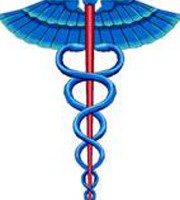Index shows huge increase in consumer health care costs
While the U.S. government has become an even more dominant force in the nation's health care system, individuals are taking on a greater share of the costs, according to the new U.S. News Health Care Index.
The index was developed exclusively by U.S. News & World Report as an ongoing way to track health care's changing role in the U.S. economy and society. The first series of data, from 2000 to 2013, presents a comprehensive overview of the U.S. health care system by following movements in health care expenditures, medical costs, insurance coverage, health care employment, international comparisons and health care degrees granted in the United States.
"There is an ongoing narrative about health care's central role in the U.S. economy, but this index demonstrates all of the ways health care is touching every aspect of our society," said Tim Smart, executive editor of U.S. News. "The Health Care Index will allow us to better understand how the health care system is evolving and its broader influence over time."
The index shows a steady trend upwards between 2000 and 2013. The largest components – health care expenditures and employment – drive the trend.
Key insights from the U.S. News Health Care Index:
- An expansion of public health insurance: Though data from the Affordable Care Act are not measured in the first iteration of the index, the federal government's expanded role is already apparent. Government-sponsored health care, including Medicare and Medicaid, have grown at a faster rate than private health insurance. The total percentage of people under the age of 65 with public health insurance coverage increased from 12.9 percent in 2000 to 23.8 percent in 2013. Private health insurance coverage decreased from 71.8 percent to 61 percent during the same period.
- A surge in individual's health care costs: Americans have taken on a higher burden of health care costs, spending 1.7 times more out-of-pocket on health care by 2013. The average cost of deductibles more than doubled over the course of a decade. The percent of premiums paid by employees increased by roughly 4 percent for both single and family plans, taking up a larger share of individual incomes. Meanwhile, there has been a 55 percent growth in prescription drug consumer prices.
- A dominant role in the U.S. economy: In 2012, the U.S. spent 17.9 percent of its GDP on health care, more than any other developed nation. Health care's share of the job market has declined since 2011, but health care jobs have steadily increased every year, from 9.7 million in 2000 to 12.5 million in 2013. There continues to be an uptick in undergraduate and graduate health care degrees granted. From 2000 to 2013, associate degrees increased 142 percent, bachelors grew by 126 percent and graduate degrees increased by 94 percent.
The U.S. News Health Care Index features a collection of interactive graphs so that users can easily explore the data, research specific data points and adjust the graphs to illustrate trends. The index (read full methodology) is made up of 36 data sets organized into eight sub-indices: health care expenditures, employment, insurance, education, insurance premiums, consumer price, insurance deductibles, and international economic impact.
The index relies on data from the U.S. Bureau of Labor Statistics, the Centers for Medicare and Medicaid Services, the United States Centers for Disease Control and Prevention, the Department of Health and Human Services, the National Center for Educational Statistics and the World Health Organization.

